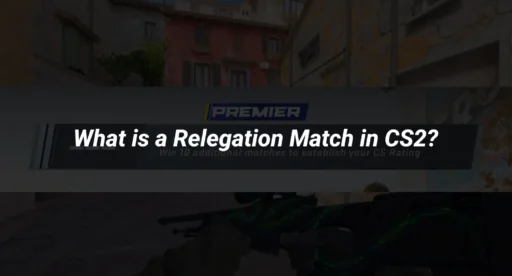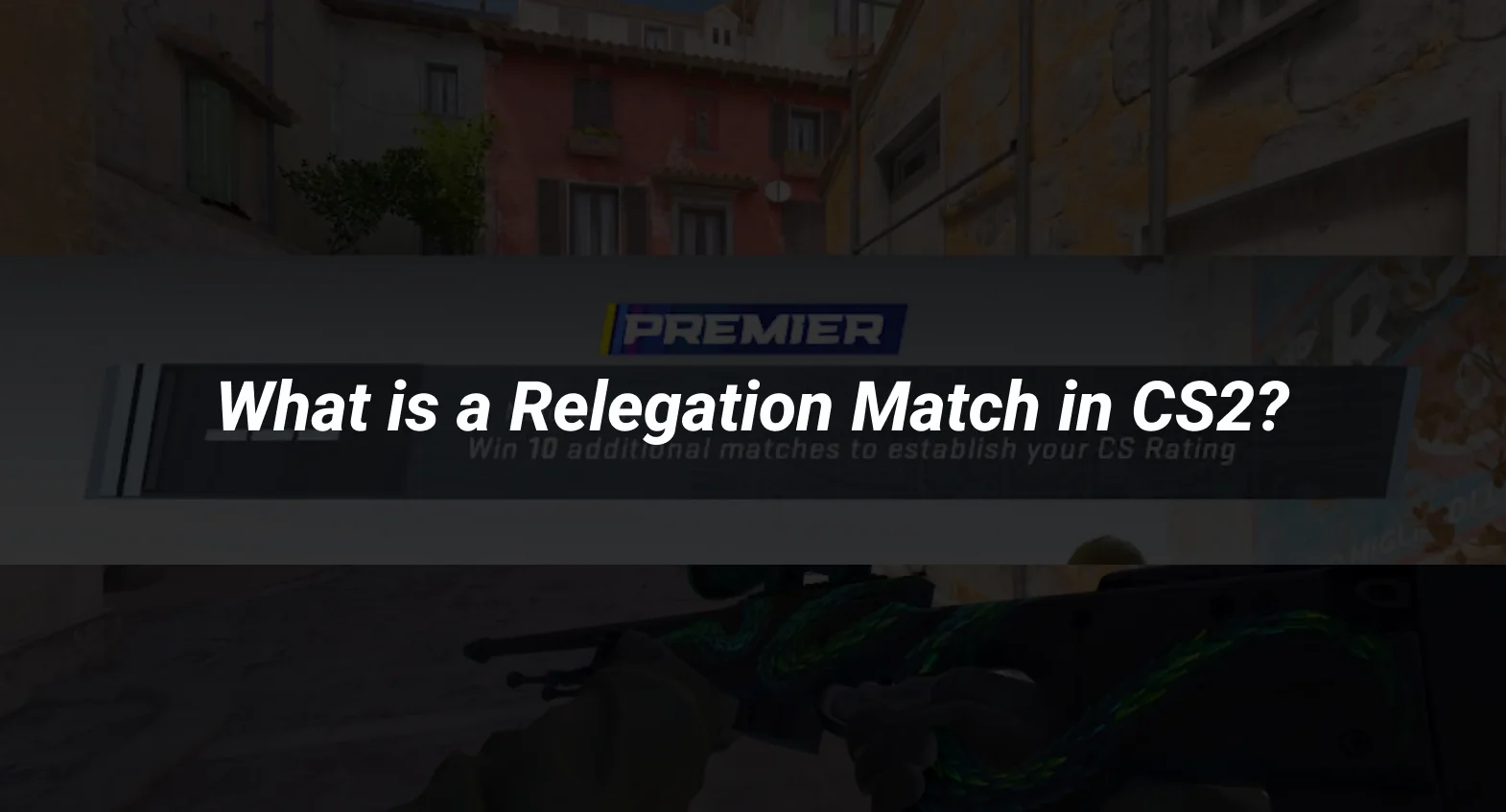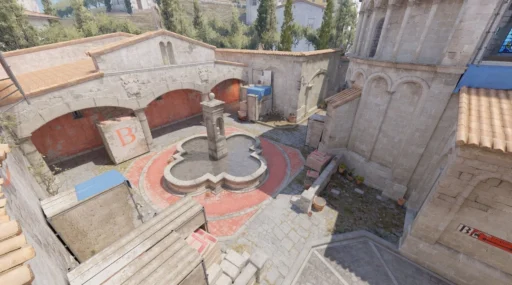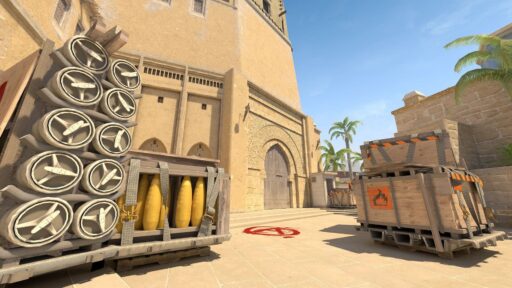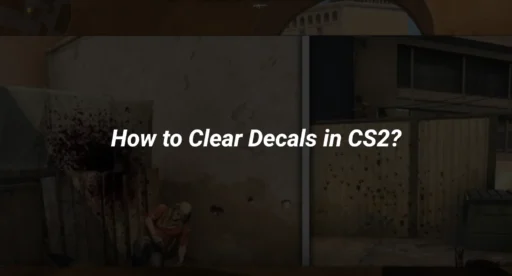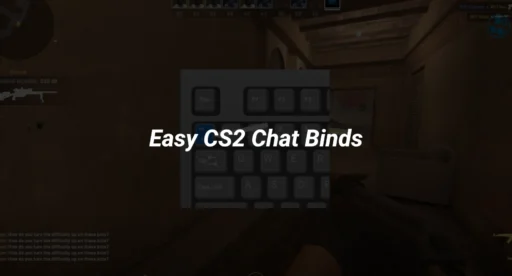Hey, have you ever been on the brink of losing your rank in Counter-Strike 2? That’s where relegation matches come into play. These are the nail-biting games that decide if you stay in your current tier or drop down. Think of it as a last chance to prove your skills before facing a lower rank. Whether you’re a seasoned player or just starting, understanding these matches is key to climbing the ranks.
Key Takeaways
- Relegation matches are crucial for maintaining your rank in CS2.
- Winning a relegation match keeps you in your current tier, while losing drops you.
- These matches add excitement and pressure, making the game more engaging.
- Understanding the CS Rating system is essential for navigating these matches.
- Teamwork and mental preparation can significantly impact the outcome.
Understanding Relegation Matches in CS2
Definition and Purpose
Relegation matches in CS2 are like the final showdown when you’re on the edge of dropping to a lower tier. These matches are your last chance to secure your current rank. If you’re hovering just above the threshold, you’ll face a relegation match. Win, and you keep your spot; lose, and you’ll drop down. This system is designed to test if you truly belong in your current ranking tier or if it’s time to step down. The purpose is pretty straightforward: to ensure players are in the right skill bracket, making matches fairer and more competitive.
Impact on Player Rankings
Your rank in CS2 is determined by the CS Rating system, which moves in blocks of 5,000 points. When you’re close to dropping below a tier, a relegation match comes into play. Winning lets you stay put, but losing means a drop to the next lower tier. This keeps players on their toes and adds a layer of excitement. The stakes are high, and every move counts, which is why these matches significantly impact player rankings. They ensure that only those who can consistently perform at a certain level remain in that tier.
Comparison with Other Games
Relegation matches aren’t unique to CS2. Other games, like League of Legends, have similar systems in place. However, the way CS2 handles it, with the CS Rating’s 5,000-point blocks, adds a unique twist. In CS2, relegation matches are more about maintaining your status rather than promoting to a higher level, which is a bit different from how other games might handle promotions and demotions. This system helps prevent players from bouncing between tiers too quickly, offering a more stable competitive environment.
How Relegation Matches Work in CS2
CS Rating System Explained
In CS2, your rank hinges on the CS Rating, which is a point-based system reflecting your performance in matches. Each win or loss affects your rating, and the numbers move in blocks of 5,000 points. When you hit a new milestone, like jumping from 14,999 to 15,000, you climb a tier. But if you’re sliding towards the bottom of your current tier, that’s when the relegation match kicks in.
Role of Elo Points
Elo points play a crucial role in determining your rank in CS2. Winning matches earns you points, while losing deducts them. The Elo system aims to match players of similar skill levels, making each game a true test of ability. In relegation matches, the stakes are higher, but interestingly, the penalty for losing is less severe than in regular matches. This means you lose fewer points, offering a slightly softer landing if things don’t go your way.
Consequences of Winning or Losing
A relegation match is your last chance to hang onto your current tier. Winning allows you to stay put, while a loss means dropping to a lower tier. However, the game cuts you some slack by reducing the points lost in a relegation match compared to a regular loss. This system is designed to keep players from bouncing between tiers too quickly and ensures that only those who truly belong in a higher tier stay there.
Relegation matches in CS2 are like a final showdown, testing whether you can hold your ground or if it’s time to regroup and climb back up.
Strategies for Succeeding in Relegation Matches
Importance of Teamwork
In a relegation match, teamwork isn’t just helpful—it’s essential. Playing with a reliable team can make or break your game. Solo queuing might seem tempting, but it’s risky. You want teammates who communicate well and understand each other’s play styles. Here’s how to make the most of your team:
- Communicate Clearly: Make sure everyone’s on the same page. Call out enemy positions, share plans, and keep communication open.
- Trust Your Teammates: Trust is key. If someone’s covering an area, don’t double up unless necessary. This lets you cover more ground.
- Adapt Together: If a strategy isn’t working, be ready to switch things up. Flexibility can catch the opponent off guard.
Mental Preparation Tips
Relegation matches come with a lot of pressure. Keeping your cool is crucial. Here’s how to mentally prepare:
- Warm Up: Spend 10-15 minutes in a deathmatch or aim trainer before the match. This helps get your mechanics sharp.
- Stay Calm: Take deep breaths and clear your mind. Panicking leads to mistakes, so keep your head in the game.
- Focus on the Present: Don’t dwell on past losses. Focus on what you can control right now.
Learning from Past Matches
Every game is a learning opportunity. Even if you lose, there’s always something to gain:
- Review Replays: Watch your past matches to identify mistakes and areas for improvement.
- Note Patterns: Look for patterns in your gameplay. Are there common mistakes you can fix?
- Set Small Goals: Focus on improving one aspect of your game at a time, like aiming or positioning.
“Relegation matches test your resolve and skills, but they’re also a chance to prove you’ve earned your spot. Embrace the challenge and learn from every experience.”
By focusing on teamwork, preparing mentally, and learning from each match, you can improve your chances of success in relegation matches. Remember, it’s not just about winning or losing but growing as a player.
The Psychological Impact of Relegation Matches
Handling Pressure and Stress
Relegation matches in CS2 are like the final boss of your ranking journey. The pressure is immense because your rank is on the line. Players often feel a mix of anxiety and excitement, knowing that the outcome of this match can either secure their current standing or drop them to a lower tier. The key to handling this pressure is to stay calm and focused. Deep breathing exercises and positive visualization can help maintain composure. Remember, it’s just another match, and panicking won’t help your gameplay.
Maintaining Focus During High-Stakes Games
When you’re in a relegation match, distractions can be your worst enemy. It’s crucial to keep your mind laser-focused on the game. Here are a few tips to maintain concentration:
- Create a distraction-free environment: Ensure your gaming area is tidy and free from interruptions.
- Use a consistent routine: Follow a pre-game ritual to get into the right mindset.
- Break down the game: Focus on one round at a time, rather than the entire match.
Overcoming Fear of Demotion
The fear of dropping to a lower rank can be paralyzing. It’s important to reframe this fear as a challenge rather than a threat. Embrace the opportunity to prove your skills and view each match as a learning experience. Even if you do get demoted, it’s not the end of the world. Use it as a stepping stone to improve and climb back up.
“In the end, it’s not about whether you win or lose your relegation match; it’s about how you handle the pressure and what you learn from the experience.”
Why Relegation Matches Matter in CS2
Motivation and Competitive Spirit
Relegation matches in CS2 are more than just a test of skill—they’re a battleground for your competitive spirit. When you’re on the verge of dropping a tier, these matches become a personal challenge. Winning one of these can give you a massive boost in confidence, proving that you truly deserve your rank. It’s like a boss battle that tests your grit and determination.
Balancing Challenge and Fairness
The system of relegation matches is designed to balance challenge and fairness. If you lose, you drop a tier, but the points lost are fewer than in a regular match. This approach ensures that players don’t yo-yo between ranks too quickly. It provides a fair chance to hold your ground, making the climb or fall more gradual and less punishing.
Long-term Effects on Player Engagement
Relegation matches keep players hooked. They add an extra layer of excitement and pressure, which can be thrilling for those who thrive under stress. These matches are crucial for long-term player engagement, as they introduce stakes that make each game feel important. The possibility of demotion keeps players coming back, eager to prove themselves again and again.
Relegation matches are the ultimate test of skill and nerves, offering a unique blend of challenge and reward that keeps players engaged and motivated.
Common Misconceptions About Relegation Matches
Myths vs. Reality
Relegation matches in CS2 are often misunderstood, leading to a bunch of myths floating around. One common misconception is that losing one means a massive drop in rank. In reality, the system is designed to soften the blow. You lose fewer points in a relegation match compared to a regular match, making the descent less harsh. Another myth is that these matches are purely luck-based. While luck can play a role, skill and strategy are the main drivers of success.
Clarifying Rules and Objectives
The rules of relegation matches aren’t as complicated as some players think. The main objective is simple: win to maintain your current tier. If you lose, you drop, but not as drastically as you might expect. The system ensures that players have a fair chance to prove their worth at their current level before moving down. It’s not just about survival; it’s about showing you belong.
Addressing Player Concerns
Players often worry about the pressure and stress of relegation matches. It’s true, these games can be intense, but they’re also a chance to demonstrate your skills under pressure. Embracing the challenge can lead to significant personal growth. Some players fear that these matches are unfair, but the goal is to balance competitiveness with fairness, ensuring everyone has a shot at staying where they are if they truly deserve it.
Comparing Relegation Matches to Promotion Matches
Key Differences and Similarities
Relegation and promotion matches are two sides of the same coin in CS2. Relegation matches test your ability to hold onto your current rank, while promotion matches challenge you to advance. Both are high-stakes, but they serve different purposes. Relegation matches give you a chance to avoid dropping a tier, whereas promotion matches offer an opportunity to climb higher. In both scenarios, players face intense pressure, but the outcomes differ significantly.
Impact on Player Progression
The impact on player progression is substantial. Winning a relegation match means you maintain your current standing, avoiding a fall in rank. On the flip side, winning a promotion match propels you to the next tier, marking a significant step in your competitive journey. However, losing a relegation match results in a softer point deduction, cushioning the fall, while losing a promotion match simply means staying put, with no penalty.
Strategic Approaches for Each
Approaching these matches requires different strategies. For relegation matches, staying calm and composed is key. It’s about survival, so focus on minimizing mistakes and playing defensively. In contrast, promotion matches call for an aggressive approach, capitalizing on every opportunity to secure a win. Here are some strategies to consider:
- Warm Up: Spend time in practice modes to sharpen your skills before the match.
- Team Coordination: Whether defending your rank or aiming for a higher one, playing with a trusted team can make a huge difference.
- Mindset: Keep a positive attitude and learn from each game, regardless of the outcome.
Relegation and promotion matches in CS2 are more than just games; they’re tests of skill, strategy, and mental fortitude. Embrace the challenge, and each victory will feel like a hard-earned triumph.
For players aiming to enhance CS Rating, understanding these matches is crucial, as they occur at every 5,000-point interval, marking pivotal moments in a player’s career.
Wrapping It Up
So, there you have it. Relegation matches in CS2 are like those final exams you dreaded in school. They can be stressful, but they also give you a chance to show what you’re made of. Winning one of these matches means you get to keep your rank, while losing might knock you down a peg. But hey, that’s part of the game. It’s all about learning, improving, and climbing back up. Whether you’re a seasoned player or just starting out, these matches add a layer of excitement and challenge to your gaming experience. So, next time you’re facing a relegation match, take a deep breath, focus, and give it your best shot. Who knows? You might just surprise yourself.


